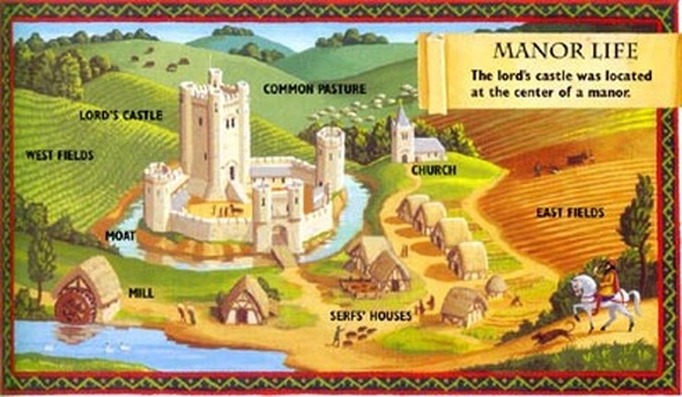

In an ideal feudal society (a legal fiction, most nearly realized in the Crusaders' Latin Kingdom of Jerusalem), the ownership of all land was vested in the king. Although some men held their land in alod, without obligation to any person, they were exceptions to the rule in the Middle Ages. Feudalism was based on contracts made among nobles, and although it was intricately connected with the manorial system, it must be considered as distinct from it. Characteristics of European Feudalism The evolution of highly diverse forms, customs, and institutions makes it almost impossible to accurately depict feudalism as a whole, but certain components of the system may be regarded as characteristic: strict division into social classes, i.e., nobility, clergy, peasantry, and, in the later Middle Ages, burgesses private jurisdiction based on local custom and the landholding system dependent upon the fief or fee.

Although analogous social systems have appeared in other civilizations, the feudalism of Europe in the Middle Ages remains the common model of feudal society. The term feudalism is derived from the Latin feodum, for "fief," and ultimately from a Germanic word meaning "cow," generalized to denote valuable movable property. He had previously built up a formidable reputation for early monographs on French rural life and for a wide range of studies on topics as varied as the decline of ancient slavery and the miracle of kingly powers of the Capetian kings.įeudalism feudalism (fyōō´dəlĬzəm), form of political and social organization typical of Western Europe from the dissolution of Charlemagne's empire to the rise of the absolute monarchies. Bloch’s status as the doyen of modern medievalists was not, of course, limited solely to Feudal Society (the second volume of which first appeared in 1940). In his foreword to the first edition of the English translation, published in 1961, Professor Michael Postan could describe the work as ‘the standard international treatise on feudalism’ and launch a spirited eulogy of Bloch’s scientific approach (‘positivistic in the proper sense of the terms’), of his broad concept and of his commitment to the study of mentalities and the w link- human environment’.1 The work had an impact on the medieval, the non-historical specialist, the student, and the general reader w Inch is unparalleled by any other work on the Middle Ages. One of the outstanding historical works of modern times’, ‘a classic’ and 'a vital work of synthesis’ are some of the accolades lavished on Marc Minch’s Feudal Society.


 0 kommentar(er)
0 kommentar(er)
